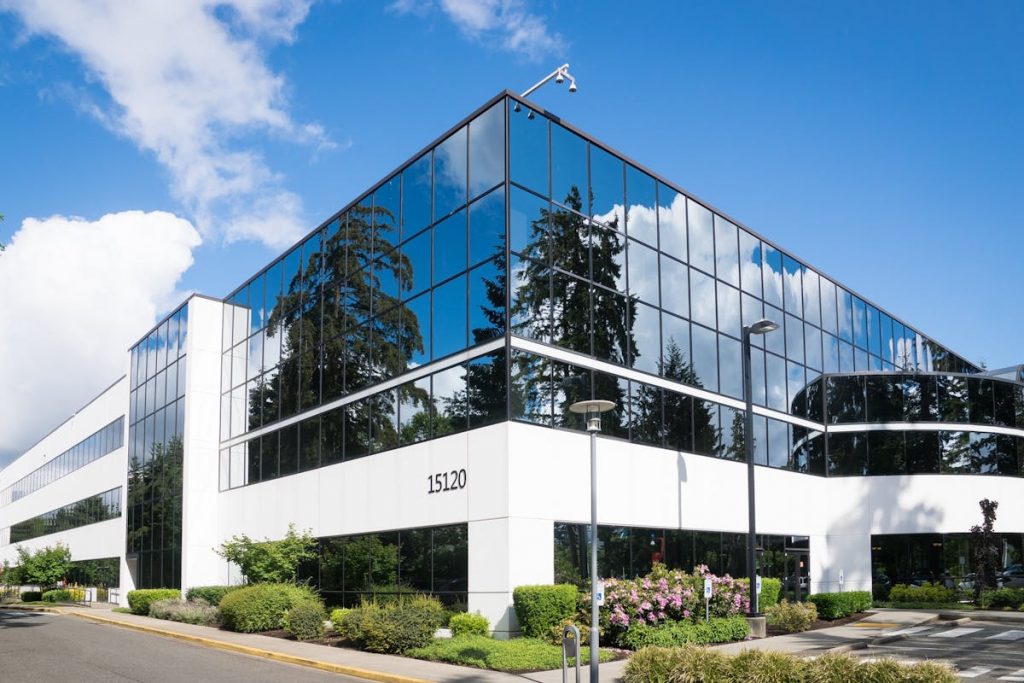
- Regular maintenance prevents costly repairs, ensuring building integrity and tenant satisfaction.
- Sustainable practices reduce costs and environmental impact, enhancing building appeal.
- Streamlined communication channels facilitate prompt responses and tenant engagement.
- Focus on security and safety safeguards tenants, staff, and assets effectively.
- Positive tenant experience through services, engagement, and feedback fosters loyalty and satisfaction.
Managing an office building efficiently requires strategic planning, effective communication, and attention to detail. From ensuring the comfort of tenants to maintaining the property’s value, numerous aspects must be considered. Whether you’re a seasoned property manager or new to the role, implementing these five tips can significantly streamline your operations and enhance the overall efficiency of your office building management.
1. Prioritize Regular Maintenance
Regular maintenance is the cornerstone of effective office building management. It involves staying proactive, addressing issues promptly, and investing in quality equipment and materials to ensure the longevity of the building’s infrastructure.
Scheduled Inspections:
Regular inspections of the building’s systems, such as HVAC, plumbing, and electrical, are crucial to identifying potential issues before they escalate. Creating a comprehensive inspection schedule and adhering to it diligently can help catch problems early on and prevent costly repairs.
Proactive Repairs:
Addressing maintenance issues promptly is key to preventing minor problems from turning into major headaches. Having a reliable team of maintenance professionals on standby to handle any issues that arise swiftly can minimize disruption for tenants and preserve the building’s integrity. You can also work with a reliable commercial property management company to take repair and maintenance tasks off your hands.
Invest in Quality Equipment:
Opting for high-quality equipment and materials during construction or renovations may entail higher upfront costs, but it can pay dividends in the long run. Quality materials are less prone to wear and tear, reducing the frequency of repairs and replacements and ultimately saving money over time.
2. Implement Sustainable Practices

Sustainability is not only environmentally responsible but also financially beneficial. By implementing sustainable practices, property managers can reduce operating costs, enhance the building’s appeal to tenants, and contribute to a greener future.
Energy Efficiency:
Adopting energy-efficient practices, such as installing LED lighting, programmable thermostats, and motion sensors, can significantly reduce utility costs and carbon emissions. Investing in energy-efficient upgrades demonstrates a commitment to sustainability while also improving the bottom line.
Waste Management:
Implementing recycling programs and encouraging tenants to minimize waste generation can divert significant amounts of waste from landfills. Partnering with local recycling facilities ensures proper disposal of recyclable materials and reduces environmental impact.
Water Conservation:
Installing low-flow fixtures and regularly inspecting for leaks can significantly reduce water consumption. Educating tenants about the importance of water conservation and encouraging them to report leaks promptly can further contribute to water savings and sustainability efforts.
3. Streamline Communication Channels
Effective communication is essential for smooth operations and tenant satisfaction. By streamlining communication channels, property managers can facilitate prompt responses to inquiries, maintenance requests, and tenant concerns.
Centralized Communication Platform:
Utilizing a centralized communication platform, such as property management software or an online portal, can streamline communication between tenants, staff, and management. This platform enables efficient handling of maintenance requests, announcements, and tenant inquiries.
Prompt Response:
Responding to tenant inquiries and maintenance requests promptly demonstrates a commitment to tenant satisfaction. Implementing a ticketing system to prioritize and track requests ensures that issues are addressed in a timely manner, enhancing tenant experience.
Open Door Policy:
Maintaining an open-door policy encourages tenants to provide feedback and raise concerns. Addressing issues proactively fosters a positive relationship with tenants and promotes a collaborative environment conducive to tenant retention.
4. Focus on Security and Safety
Security and safety are paramount concerns for office building management. By implementing robust security measures and emergency preparedness plans, property managers can safeguard tenants, staff, and assets.
Secure Access Control:
Implementing robust access control measures, such as key card systems or biometric scanners, regulates entry to the building and sensitive areas. Regularly updating access credentials and monitoring access logs helps prevent unauthorized access and enhances security.
Emergency Preparedness:
Developing comprehensive emergency response plans and conducting regular drills prepares tenants and staff for various scenarios, such as fires, natural disasters, or security threats. Providing clear evacuation routes and emergency contact information ensures a coordinated response in times of crisis.
Surveillance Systems:
Installing surveillance cameras in common areas and parking lots deters criminal activity and enhances security. Regularly reviewing footage and addressing security concerns promptly helps maintain a safe and secure environment for tenants and staff.
5. Foster a Positive Tenant Experience
A positive tenant experience is essential for tenant satisfaction and retention. By offering additional services, fostering community engagement, and soliciting regular feedback, property managers can create a welcoming and supportive environment for tenants.
Responsive Tenant Services:
Offering additional services or amenities, such as on-site fitness centers or concierge services, enhances the tenant experience and adds value to the property. Tailoring these offerings to the needs and preferences of tenants fosters a sense of community and loyalty.
Community Engagement:
Organizing community events or initiatives, such as networking mixers or charity drives, fosters a sense of belonging among tenants. These activities create opportunities for networking, collaboration, and social interaction, enhancing tenant satisfaction and retention.
Regular Feedback:
Soliciting feedback from tenants through surveys or focus groups helps property managers understand their needs and preferences better. Using this feedback to make informed decisions and address concerns demonstrates a commitment to tenant satisfaction and continuous improvement.
Efficiently managing an office building requires a proactive approach and a focus on optimizing operations while prioritizing tenant satisfaction and safety. By prioritizing regular maintenance, implementing sustainable practices, streamlining communication channels, focusing on security and safety, and fostering a positive tenant experience, property managers can enhance the overall efficiency and value of their office buildings. Embracing these tips not only benefits the bottom line but also creates a conducive environment for tenants to thrive and businesses to flourish.
